Published
- 13 min read
Best OVH Alternatives for Cloud Hosting (2025)

Key Highlights
- Many businesses are moving away from OVH due to downtime issues, hidden costs, and slow support.
- The best OVH alternatives balance performance, transparent pricing, and ease of use.
- Top competitors in 2025 include Kuberns, Hetzner, DigitalOcean, Vultr, Linode, Kamatera, and Google Cloud/Azure.
- How Kuberns stands out by offering AWS-grade reliability, AI-driven automation, and up to 40% lower costs.
- Whether you’re a startup, SMB, or agency, these providers offer more predictable and reliable hosting than OVH.
Introduction
Many businesses are actively searching for OVH alternatives in 2025 and for good reason. While OVHcloud has long been a popular name in the cloud hosting and IaaS space, especially across Europe, it often struggles to meet the expectations of modern teams.
Startups and SMBs complain about hidden costs, downtime incidents, and complicated support, while developers want more transparent pricing and better performance without the overhead.
For agencies and growing businesses, these issues quickly turn into lost time and rising bills.
That’s why more teams are exploring other options that deliver reliable cloud hosting at a lower cost.
In this guide, we’ll look at what makes a strong alternative and compare the top 7 OVH competitors in 2025.
What to Look for in an OVH Alternative
Before jumping into the list of the best OVH alternatives, it’s important to understand what actually makes a good replacement.
Many teams move away from OVH because they’re frustrated with billing surprises, downtime, or complex setup, but not every alternative automatically solves those problems.
Here are the key factors worth considering when comparing providers:
1. Performance and Scalability
Your hosting provider should deliver 99.9%+ uptime, fast response times, and smooth scaling when traffic grows. Downtime isn’t just inconvenient. Studies show it costs businesses thousands of dollars per hour.
2. Transparent Pricing
One of the biggest complaints about OVH is that final bills are often higher than expected due to add-on charges for bandwidth, storage, or support. A good alternative should offer clear, predictable monthly costs without hidden extras.
👉 Related reading: AWS EC2 Pricing: Your 2025 Cost Breakdown Guide
3. Ease of Use for Developers
OVH can be intimidating for smaller teams without a dedicated IT staff. A modern alternative should focus on simplicity and user-friendly dashboards, making it easier to launch, monitor, and scale apps without heavy DevOps work.
4. Cost-to-Performance Value
Cheapest doesn’t always mean best. The right OVH competitor balances affordability and strong performance, so you’re not sacrificing reliability for savings.
In short, the best OVH alternatives will give you high-performance hosting with transparent pricing and less complexity, making them ideal for startups, SMBs, and agencies alike.
Top 7 OVH Cloud Alternatives for Cloud Hosting
There’s no shortage of cloud hosting providers, but when it comes to OVH alternatives, only a few truly strike a balance between cost, performance, and reliability.
Here are the top 7 competitors in 2025 that businesses are turning to.
1. Kuberns
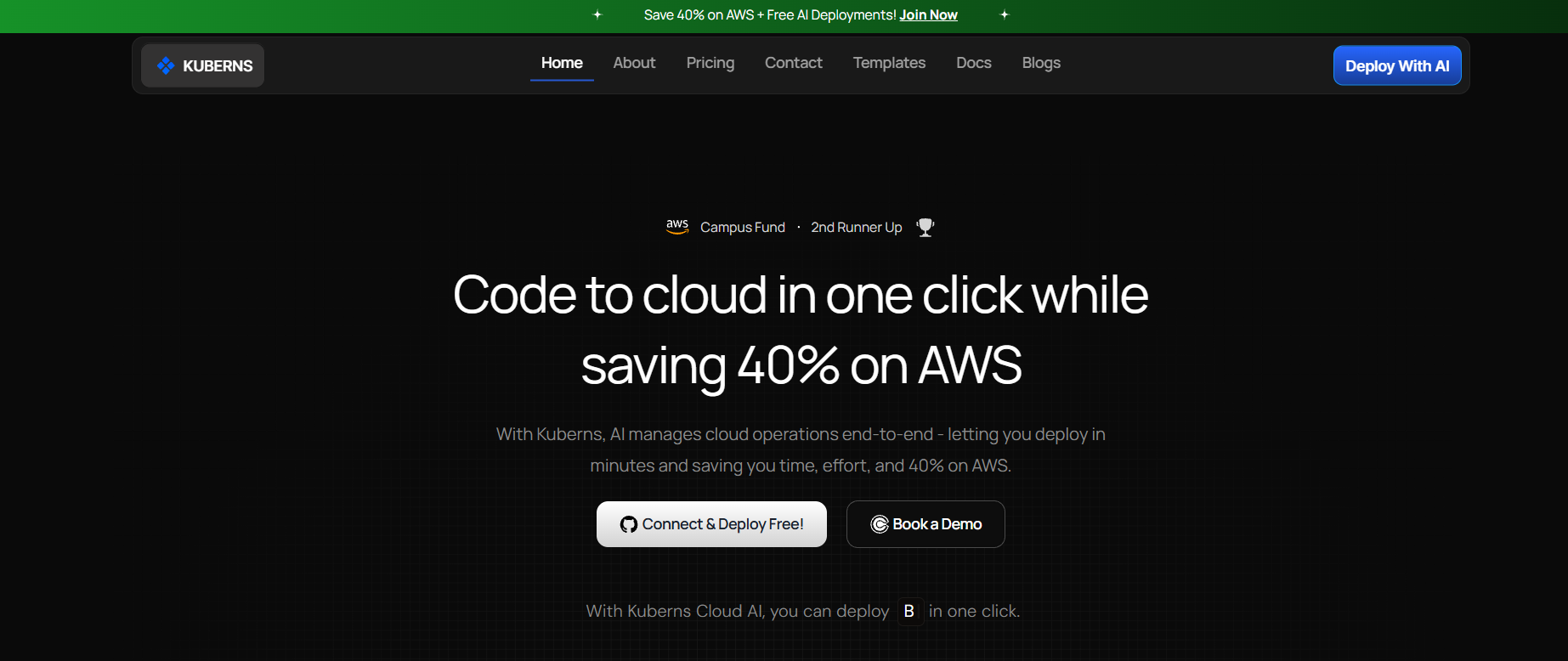 Kuberns is built as a smarter alternative to traditional cloud providers. While OVH makes users manage everything themselves, Kuberns bundles AI-driven automation, monitoring, and cost optimisation into one platform.
Kuberns is built as a smarter alternative to traditional cloud providers. While OVH makes users manage everything themselves, Kuberns bundles AI-driven automation, monitoring, and cost optimisation into one platform.
Why Kuberns is different:
- High-performance hosting on AWS-grade infrastructure, but optimised to cost up to 40% less.
- AI-driven scaling & monitoring that prevents wasted resources and keeps apps running smoothly.
- Transparent billing, no hidden charges for bandwidth or backups.
- Built-in CI/CD pipelines and one-click GitHub deployments, so developers don’t need DevOps engineers to get projects live.
For startups, SMBs, and agencies that want enterprise reliability without enterprise complexity, Kuberns is the clear winner among OVH alternatives.
Read now: What is Kuberns?
2. Hetzner
 Hetzner is often the first name mentioned when people look for budget-friendly OVH competitors in Europe. It’s extremely affordable, with cloud instances starting under €4/month, and has a reputation for strong raw performance.
Hetzner is often the first name mentioned when people look for budget-friendly OVH competitors in Europe. It’s extremely affordable, with cloud instances starting under €4/month, and has a reputation for strong raw performance.
Strengths:
- One of the cheapest providers on the market.
- Strong hardware performance for compute and storage.
- Transparent flat pricing.
Drawbacks:
- Data centres are limited to Germany and Finland.
- Support and documentation aren’t as user-friendly for beginners.
- Global reach is weaker compared to Vultr or GCP.
If your audience is EU-based and cost is your top concern, Hetzner is a solid OVH alternative, though it lacks the automation and simplicity of Kuberns.
👉 Related: Best Hetzner Alternative Options
3. DigitalOcean
 DigitalOcean is one of the most developer-friendly cloud providers and a long-standing OVH competitor. It’s especially popular with startups and SMBs thanks to its simple, predictable pricing.
DigitalOcean is one of the most developer-friendly cloud providers and a long-standing OVH competitor. It’s especially popular with startups and SMBs thanks to its simple, predictable pricing.
Strengths:
- Transparent pricing starting at $5/month.
- User-friendly dashboard and APIs.
- Good mix of performance and scalability for small-to-mid projects.
Drawbacks:
- Limited enterprise-level features.
- Costs rise as you scale (no built-in optimisation).
- Still requires manual setup for monitoring and automation.
Compared to OVH, DigitalOcean feels cleaner and easier to manage, but if you want long-term cost optimisation, Kuberns delivers more value.
Also Read: Best Cloud Platform: DigitalOcean vs AWS
4. Vultr
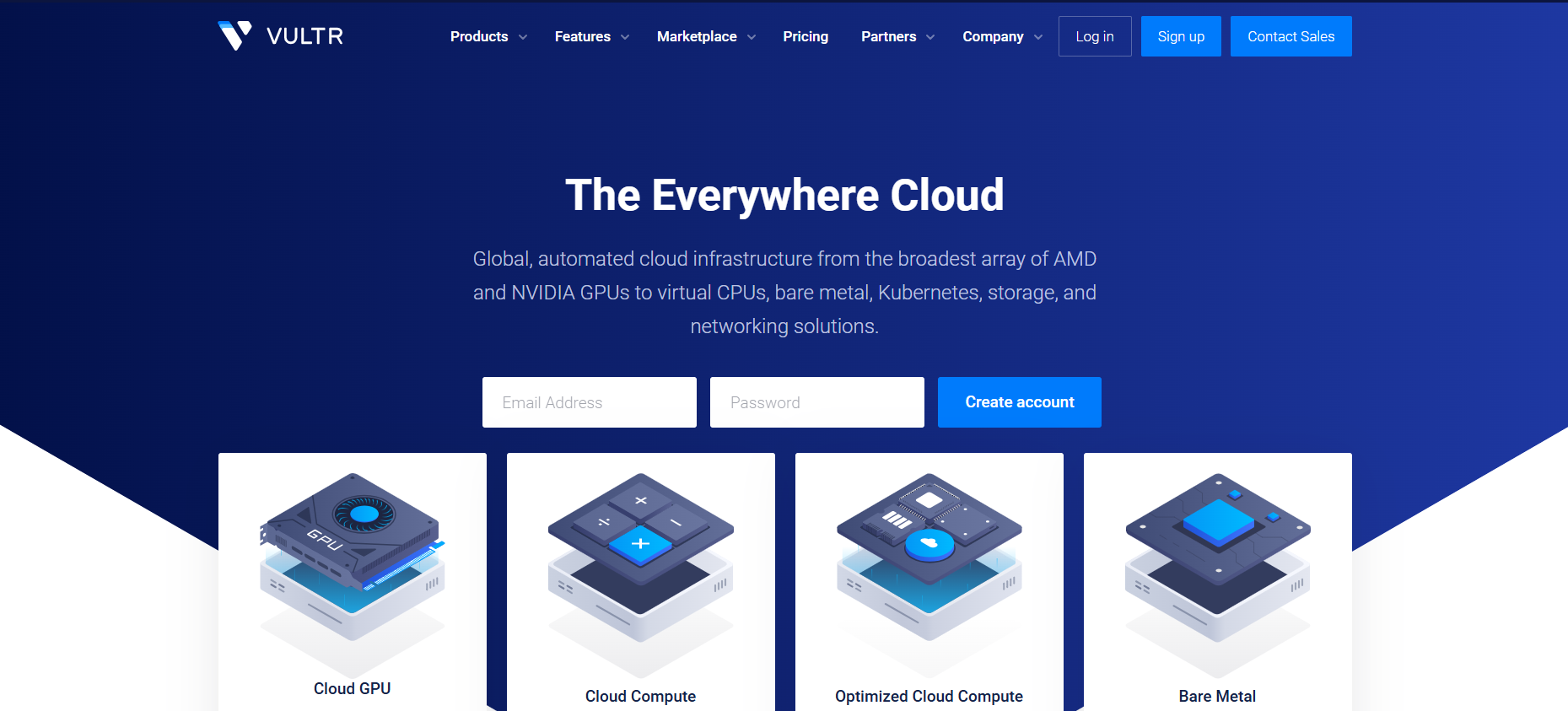 Vultr stands out for its global coverage with over 30 data centers worldwide, making it one of the best OVH competitors if you need low latency across regions. It’s also extremely cost-effective, with entry-level instances starting at just $2.50/month.
Vultr stands out for its global coverage with over 30 data centers worldwide, making it one of the best OVH competitors if you need low latency across regions. It’s also extremely cost-effective, with entry-level instances starting at just $2.50/month.
Strengths:
- Wide global data centre presence.
- Affordable bare-metal servers for high-performance workloads.
- Competitive pricing across all plans.
Drawbacks:
- Support quality is inconsistent.
- Scaling and monitoring must be handled manually.
- Pricing can spike once you add bandwidth-heavy workloads.
For teams focused on global reach and affordability, Vultr is a reliable alternative, though it doesn’t have the automation layer of Kuberns.
You might be interested in Reading: Best Vultr Alternatives
5. Linode (Akamai Cloud)
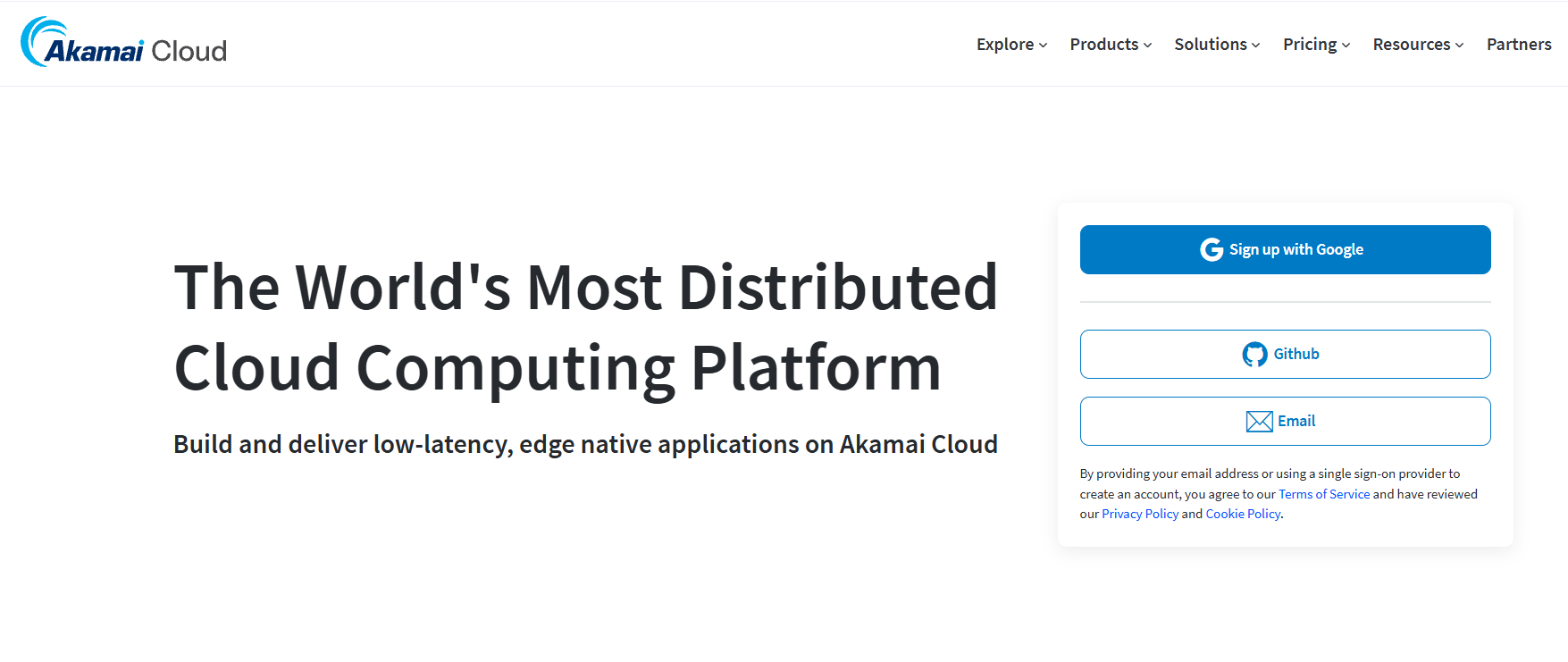 Linode, now part of Akamai, is a developer-friendly OVH alternative known for its flat-rate monthly pricing. It’s often chosen by SMBs and developers who want stable performance without billing complexity.
Linode, now part of Akamai, is a developer-friendly OVH alternative known for its flat-rate monthly pricing. It’s often chosen by SMBs and developers who want stable performance without billing complexity.
Strengths:
- Predictable pricing, no surprise bills.
- Good developer community and documentation.
- Strong performance for small-to-medium workloads.
Drawbacks:
- Not ideal for enterprise-scale projects.
- Doesn’t include advanced automation or AI-based optimisation.
For SMBs, Linode is a safe and predictable option, though it lacks the smarter cost management features of Kuberns.
6. Kamatera
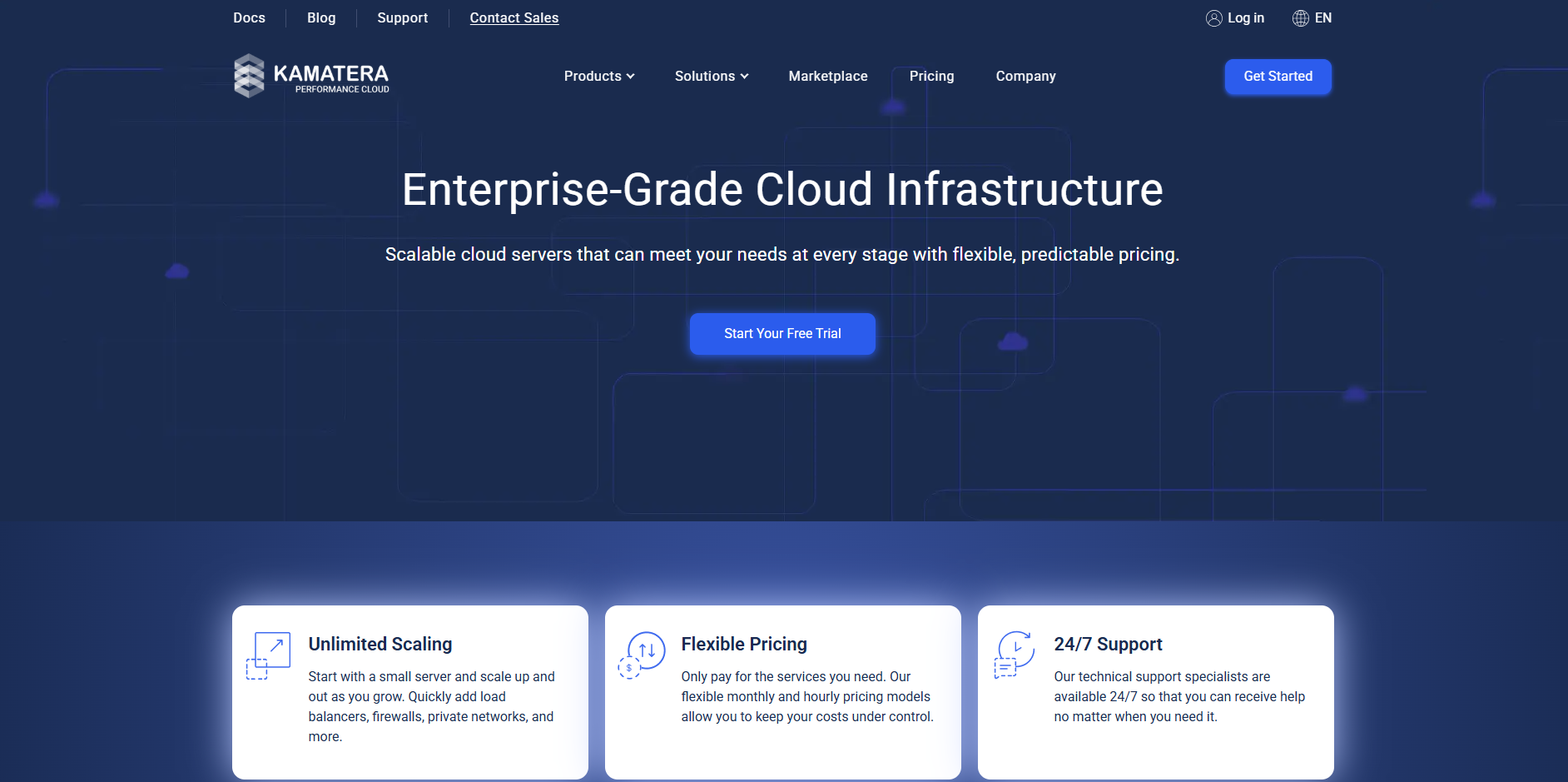 Kamatera is a highly customizable OVH alternative. Unlike flat-rate providers, Kamatera offers pay-per-minute pricing with granular control over CPU, RAM, and storage.
Kamatera is a highly customizable OVH alternative. Unlike flat-rate providers, Kamatera offers pay-per-minute pricing with granular control over CPU, RAM, and storage.
Strengths:
- Flexible pricing based on usage.
- Customizable configurations.
- Good global coverage with data centres across multiple regions.
Drawbacks:
- Complexity increases as workloads grow.
- Costs can become unpredictable for high-traffic apps.
- Requires technical expertise to configure properly.
If you want flexibility above all else, Kamatera is a strong competitor, but it’s less beginner-friendly compared to Kuberns.
Read Now: Top Kamatera Alternatives for Your Cloud Needs
7. Google Cloud & Microsoft Azure
 Both Google Cloud (GCP) and Microsoft Azure are common OVH alternatives for enterprises that need scale and global presence. They offer advanced services like AI/ML, hybrid cloud, and global load balancing.
Both Google Cloud (GCP) and Microsoft Azure are common OVH alternatives for enterprises that need scale and global presence. They offer advanced services like AI/ML, hybrid cloud, and global load balancing.
Strengths:
- Enterprise-grade infrastructure.
- Global availability and advanced tools.
- Strong support for regulated industries.
Drawbacks:
- Expensive compared to smaller providers.
- Complexity similar to AWS.
- Overkill for most startups or SMBs.
If your organisation is enterprise-scale and already using advanced cloud tools, GCP and Azure are viable OVH competitors. For smaller teams, they may be too costly and complex.
This list shows the full spectrum: budget-friendly providers (Hetzner, Vultr), developer-first options (DigitalOcean, Linode), customizable infra (Kamatera), and enterprise clouds (GCP, Azure). But Kuberns stands out as the only OVH alternative that combines automation, cost savings, and simplicity in one package.
OVH vs Alternatives: Where OVH Falls Short
OVH has earned its place in the cloud hosting market with competitive pricing and a wide portfolio of services.
But when stacked against its competitors, several weaknesses become clear, and these are often the reasons why businesses actively search for OVH alternatives.
1. Unpredictable Downtime
OVH has faced several high-profile outages in recent years, including incidents that left thousands of websites offline for hours. For businesses where uptime equals revenue, this level of risk is unacceptable. Competitors like Hetzner, DigitalOcean, and Kuberns offer stronger reputations for reliability and stability.
2. Complex and Slow Support
A common complaint among OVH users is the difficulty of getting timely support. Tickets often take days to resolve, leaving developers stuck in critical situations. By contrast, alternatives such as DigitalOcean and Kuberns provide more responsive and developer-friendly support options.
3. Hidden Costs in Billing
On paper, OVH looks affordable, but extra charges for bandwidth, backups, and add-ons often inflate monthly bills. For cost-conscious startups and SMBs, this makes planning budgets difficult. Competitors like Linode and Kuberns provide clearer, more predictable pricing.
4. Developer Experience Lags Behind
OVH’s platform is feature-rich, but not always intuitive. For teams without dedicated DevOps resources, managing OVH’s infrastructure can feel cumbersome. Alternatives such as DigitalOcean simplify the experience, while Kuberns goes further by automating scaling, monitoring, and CI/CD.
| Provider | Pricing Transparency | Reliability/Uptime | Global Coverage | Ease of Use | Automation & Cost Optimization |
|---|---|---|---|---|---|
| OVH | Hidden costs for bandwidth and backups | History of downtime incidents | Strong EU presence | Complex, steep learning curve | Manual setup required |
| Kuberns | Transparent, all-inclusive pricing | High uptime (AWS-backed infra) | Global via AWS infrastructure | One-click deployments, built-in CI/CD | AI-driven scaling and 40% cost savings |
| Hetzner | Flat monthly pricing | Reliable EU hosting | Limited to EU | Technical setup needed | No built-in automation |
| DigitalOcean | Simple, predictable plans | Solid uptime | Global, smaller footprint | Very user-friendly | Manual scaling and monitoring |
| Vultr | Competitive low-cost plans | Good reliability | 30+ global locations | Can be complex for beginners | No optimization tools |
| Linode (Akamai) | Flat-rate billing | Stable performance | Smaller footprint | Developer-friendly | No AI-based cost optimization |
| Kamatera | Pay-per-minute, flexible but complex | High reliability | Global data centers | Requires technical expertise | No built-in automation |
| Google Cloud / Azure | Complex pricing models | Enterprise-grade reliability | Global coverage | Steep learning curve | Manual cost control |
OVH may work for certain enterprise needs, but for most startups, SMBs, and agencies, the costs, downtime risks, and complexity outweigh the benefits. That’s why competitors, especially Kuberns, are gaining ground.
Why Kuberns is a Smarter OVH Alternative?
Switching away from OVH often comes down to three things: cost, reliability, and complexity.
Traditional providers may solve one or two of these problems, but very few address all three. That’s where Kuberns stands out as a next-generation IaaS platform.
1. Transparent, Predictable Pricing
Unlike OVH, where bills can increase due to extra bandwidth or backup charges, Kuberns keeps costs clear and all-inclusive. Businesses can plan their monthly budgets without worrying about surprise invoices.
2. AI-Driven Performance and Scaling
OVH and many of its competitors require manual configuration for scaling and monitoring. Kuberns uses AI to automatically scale resources in real time, ensuring applications run smoothly while cutting waste. This optimisation alone delivers up to 40% lower costs compared to traditional cloud providers.
3. Reliability on Proven Infrastructure
Kuberns is built on optimised AWS infrastructure, giving teams the same reliability and uptime as the world’s most trusted cloud, but at significantly lower cost. This makes it a strong fit for startups, SMBs, and agencies that need enterprise-grade stability without enterprise-level expenses.
4. Developer-Friendly by Design
Where OVH feels complex and support can be slow, Kuberns puts ease of use front and centre. With one-click GitHub deployments, built-in CI/CD, and automated monitoring, developers can focus on building features instead of wrestling with infrastructure.
Final Verdict: The Best OVH Alternative in 2025
OVH has been a popular choice in the cloud hosting market, but its history of downtime, complex billing, and slow support continues to push businesses to explore better options.
The good news is that there are plenty of reliable OVH alternatives in 2025.
- Hetzner, DigitalOcean, Vultr, and Linode provide affordable and developer-friendly hosting.
- Kamatera offers flexible infrastructure for those who want customisation.
- Google Cloud and Microsoft Azure deliver enterprise-grade scale and reliability.
Each of these providers has strengths, but they also leave gaps, especially around automation, cost optimisation, and ease of use.
That’s where Kuberns rises above the rest.
By combining transparent pricing, AI-powered scaling, and AWS-grade reliability, Kuberns eliminates the pain points that push teams away from OVH in the first place. It’s the alternative that delivers performance, predictability, and simplicity all in one platform.
If you’re ready to cut cloud costs, avoid complexity, and upgrade to smarter hosting, the answer is clear:
Start Saving on Cloud Hosting with Kuberns

FAQs on OVH Alternatives
1. Why are businesses moving away from OVH?
The main reasons are downtime incidents, slow support response times, and hidden costs. Many companies prefer alternatives that offer more reliability, transparent pricing, and a stronger customer experience.
2. What is the best OVH alternative in 2025?
The best OVH alternative depends on your needs. Hetzner is the cheapest in the EU, DigitalOcean is great for simplicity, and Vultr offers strong global coverage. For businesses that want cost savings, automation, and AWS-grade reliability, Kuberns is the smarter choice.
3. Which OVH alternative is cheapest?
For raw pricing, Hetzner usually comes out on top, with servers starting under €4/month. However, cheaper does not always mean better. Platforms like Kuberns offer up to 40% cost savings through AI optimisation while also providing automation and transparent billing.
4. How hard is it to migrate from OVH to another provider?
Migration difficulty depends on your workloads, but most providers, including Kuberns, make it straightforward. With the right planning for backups, DNS updates, and testing, moving away from OVH can often be done with minimal downtime.
5. Is Kuberns a reliable OVH alternative?
Yes. Kuberns is built on optimised AWS infrastructure, which delivers enterprise-grade uptime and performance. On top of that, it adds AI-powered scaling, monitoring, and transparent pricing, making it a reliable and cost-effective alternative to OVH.